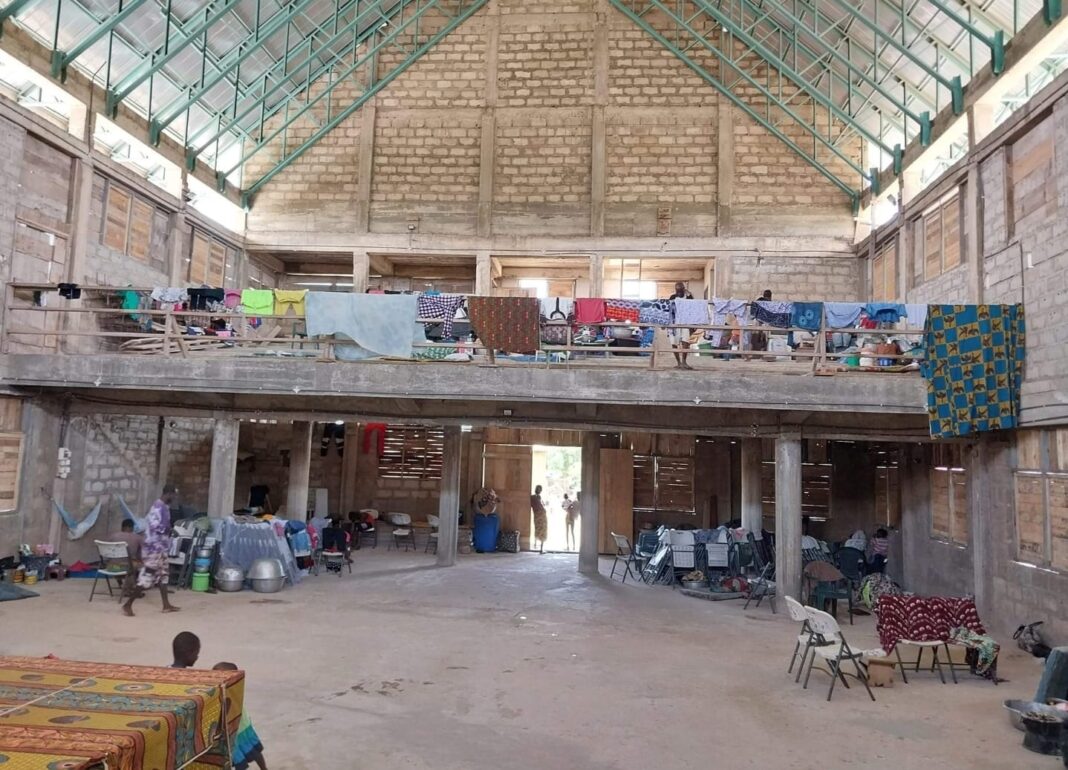The Catholic Archbishop of Ghana’s Accra Archdiocese is appealing for humanitarian support for Catholics and non-Catholics affected by the devastating floods in some communities in the southern part of Ghana’s capital city Accra due to the spillage of the Weija dam.
The spillage of the Dam which began early October left many residents homeless at the Tetegu, Weija, Ashbread and other communities as the spilled water took over their homes and businesses including the St. Peter Catholic Church at Tetegu where some affected inhabitants have taken shelter.
The Catholic Church has become home to the affected persons. Relief items (food, clothing, etc) are urgently needed to support these distressed brothers and sisters.
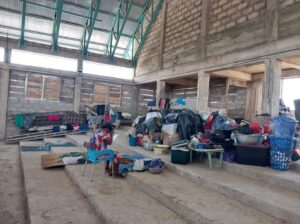
The dam located within the Weija-Gbawe Municipality in the Greater Accra Region serves as the source of potable water for more than half of the 5.4 million population of the national capital.
The spillage of the dam was caused by excess water following torrential rains over in early October, contributing to the water level behind the dam rising above the maximum level.
The dam built on the Densu River is the source of potable water for more than half of the 5.4 million population of the national capital of Accra.
Making an appeal to Priests, Religious and the lay faithful of the Catholic Archdiocese of Accra through a message, the Metropolitan Archbishop of Accra, the Most Rev. John Bonaventure Kwofie, CSSp, called on societies and groups in the Church to come to the aid of the people.
“Kindly call on the Catholic faithful, such as Knights of St. John International and Ladies Auxiliaries, Knights and Ladies of Marshall, Laity Council, WUWCO, etc. to go to the aid of the people of Weija and Tetegu with relief items such as food and clothes to help them in the floods that have affected them,” the Archbishop appealed in his message to Priests circulated on social media.

According to the Archbishop, “the result of the spillage is devastating and they need our help. If individuals don’t know how to send help, my office and Fr. Elvis Mensah are ready to help. Please, announce this in your Parishes and Rectorates.”
The appeal by the Archbishop is yielding results as the Priest-in Charge of the St. Peter’s Church, Fr. Elvis Mensah in a message said “Thanks for your wonderful support to the communities of Weija and Tetegu in this difficult moment.”
“The water level is still high even though we were told that the gates of the dam have been closed. Some of our faithful and non-Catholics are lodging in the main Church. Others have moved out of the community for personal safety,” he noted
Adding, he said, “just now, a Church community has brought us some clothings, shoes, etc. Others have sent monies for the people. We can’t thank you enough. God bless you.”
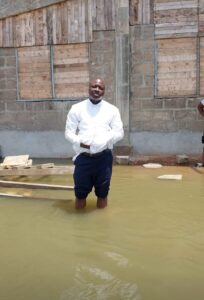
Even though there are currently one reported death, thousands of residents have been displaced with their properties destroyed. The St. Peter’s Catholic Church and some had their houses flooded while some the water got to their waist level. Due to the destructive nature of the flood, some people have left the area despite they had resided in the vicinity for years.
“In fact due to the flood, most of my gadgets are damaged. I am thinking of relocating. Thankful to the Catholic Church for their support to us,” said one of the affected resident.
Meanwhile, authorities of the Ghana Water Company Ltd., operators of the Weija dam have been explaining that the spillage was necessary. Communications Manager of Company, Stanley Martey have been explaining to the media that the spillage was essential as the water behind the dam had exceeded its maximum holding capacity.
He said “We informed the communities days ahead of the spillage, but many did not heed the warning.”
In the meantime, the Ghana’s National Disaster Management Organization (NADMO), together with the Marine Police Unit, Ghana Navy, 48 Engineers Regiment, Ghana National Fire Service, and the Ghana Ambulance Service, have embarked on search and rescue operations response to distress calls.
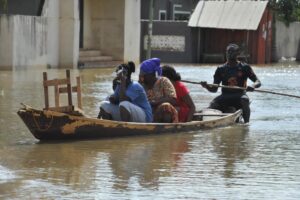
Speaking to the media after a day’s patrol in the flooded communities, Mr. Richard Amo Yartey, Director of Inspectorate at NADMO, said “This situation is different. It is worse than we have ever experienced, so people in areas which were usually not affected are affected this time,”
He added: “The Electricity Company of Ghana had to put out the lights in these communities so there will be no electrocutions as we wade through the waters to save lives.
“This is not the normal raining season that we all know. We are talking about climate change, global warming, and the rains came at a time nobody was expecting it and the inflow into the dam is high. Without the spillage, the dam could burst, with dire consequences to those downstream,” he added.
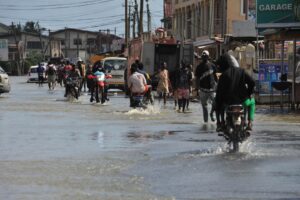
After NADMO had opened up the estuary to allow the flood waters to flow into the sea, Yartey was confident that the situation would improve.
The Weija Dam was built in 1977 to meet the potable water needs in Accra. Residential communities, however, have sprung up downstream of the Densu River, and whenever the GWCL spills excess water for the safety of the dam, it will create catastrophes.

